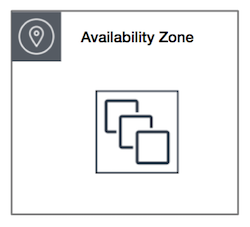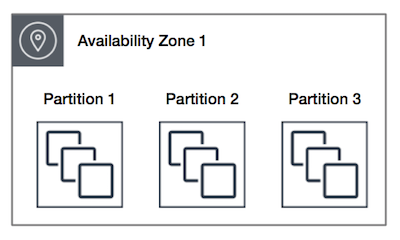EC2 (Elastic Compute Cloud)

EC2 provides a scalable compute infrastructure that can be sized to match the workload’s needs.
More Information
Pricing
On-Demand
- Paid by hour or seconds (depending on instance type)
- No longer-term commitments
- No upfront payment
Recommended for:
- Applications with short term, spiky or unpredictable workloads that cannot be interrupted
- Applications being developed or tested on Amazon EC2 for the first time
More Information
Spot
- Allows you to bid for spare EC2 computing capacity
- Up to 90% off the On-Demand price
- The average frequency of interruption across all Regions and instance types is < 5%
- The billing for interrupted spot instances is different depending on whether it was you or Amazon that stopped/terminated the instance
- Estimated savings over on-demand and frequency of interruption can be found Spot Instance advisor
Recommended for:
- Applications that have flexible start and end times
- Applications that are only feasible at very low compute prices
- Users with urgent computing needs for large amounts of additional capacity
More Information
Instance Savings Plans
- Usage commitment (measured in $/hour) for a one or three-year period
- All upfront, partial upfront or no upfront payment options (changes the final price)
- Up to 72% off the On-Demand price
Recommended for:
- Applications with steady state or predictable usage
More Information
Dedicated Hosts
- Dedicated physical EC2 server
- Can be purchased on-demand (hourly) or as a a reservation (up to 70% off)
- Allows you to use your existing server-bound licenses
- Useful for regulatory requirements that may not support multi-tenant virtualization
Recommended for:
- Software licenses that are bound to VMs, sockets, or physical cores
- Corporate compliance or regulatory requirements that enforce the need to run the instances on dedicated servers instead of multi-tenant servers
More Information
Instance Types
- Determines the hardware of the host computer
- Each instance type offers different compute, memory, and storage capabilities
- Instance types are grouped in an instance family based on their capabilities.
More Information
Instance Termination
- When an instance terminates, the data on any instance store volumes associated with that instance is deleted
- By default, EBS root device volumes are automatically deleted when the instance terminates, but any additional EBS volumes persists
- You can prevent an instance from being terminated accidentally enabling Termination Protection
Instance Metadata and User Data
Metadata
- Data about the instance (e.g. hostname, events, IPs)
http://169.254.169.254/latest/meta-data/
User Data
- Bootstrap configuration or script
- By default, it runs only on first boot cycle
http://169.254.169.254/latest/user-data/
Placement Groups
Placement groups influence the placement of a group of interdependent instances across underlying hardware to minimize correlated failures
- You can't merge placement groups.
- An instance can be launched in one placement group at a time
- There is no charge for creating a placement group
Clustered Placement Group
- Grouping of instances within a single Availability Zone
- It can span peered VPCs in the same Region
- Not recommended for mixing instance types
- Launching instances over time increases the chances of getting an insufficient capacity error
Recommended for:
- Applications that benefit from low network latency or high network throughput
Partition Placement Group
- Amazon divides each group into logical segments called partitions
- Each partition within a placement group has its own set of racks, which has its own network and power source
- It can have partitions in multiple Availability Zones in the same Region
Recommended for:
- Large distributed and replicated workloads (e.g. HDFS, HBase, Cassandra)
Spread Placement Group
- Group of instances that are each placed on distinct racks, with each rack having its own network and power source
- Suitable for mixing instance types or launching instances over time
- Can span multiple Availability Zones in the same Region
Recommended for:
- Applications that have a small number of critical instances that should be kept separate from each other


